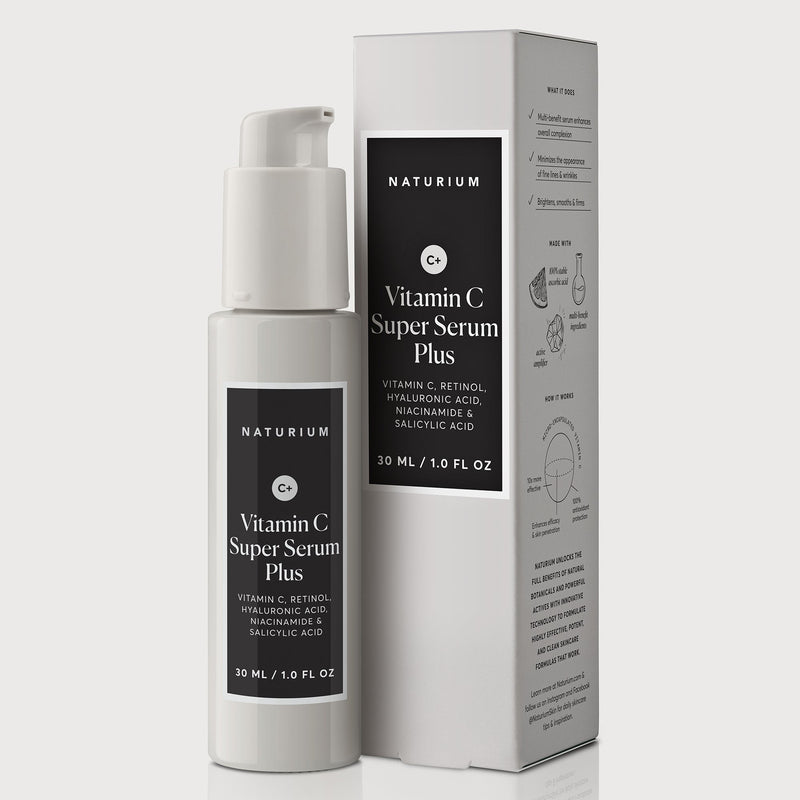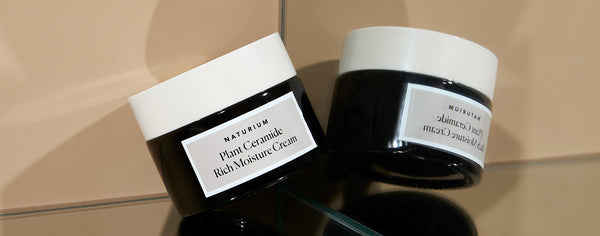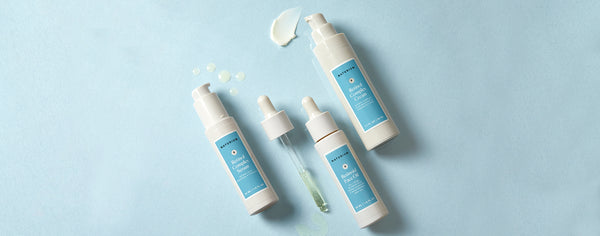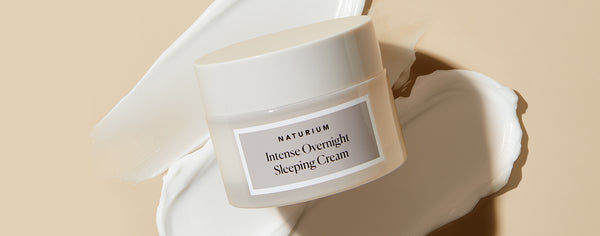Prebiotic Skincare - Does It Work?

Prebiotic skincare— we've all heard about the benefits of prebiotics when ingested but do they work when applied topically? A balanced, stable microbiome is fundamental for healthy-looking skin. Prebiotics work with the skin flora and provide beneficial bacteria to improve complexion. Read more to learn more about the benefits of prebiotic skincare.
THE SCIENCE BEHIND IT…
OVERALL CLINICAL DATA ON SPECIFIC INGREDIENT(S) & HOW THEY FUNCTION:
Skin is complex—it is more than just an arrangement of specialized human cells which provide protection from the external environment. Our skin barrier is host to a diverse and intricate network of resident microorganisms (commensals)—bacteria, viruses and fungi—which exist mutualistically with us, the host1,2. Studies regarding the skin microbiome have been established over many years, demonstrating the need and importance of these microbes for our overall skin health1,3. The cosmetics industry has realized that there is a need to go beyond just enhancing the appearance of our skin, by targeting one of the key intrinsic mechanisms which facilitates our skin health—the microbiome.
Skin microbiome
This natural ecosystem of microbes exists harmoniously, acting as our primary defence against external aggressors4. These communities of microbes are capable of keeping resident populations in check, preventing the growth of unwanted microorganisms and stimulating the immune system to trigger innate responses against pathogens. An imbalance, or dysbiosis, of the microbiome has been attributed to the disruption of the skin barrier and the aggravation of chronic skin diseases such as acne5–7, eczema8–10, rosacea11,12 and psoriasis13–15.
So, why is all of this important to know? Based on existing scientific research regarding the benefits and intricacy of the skin microbiome, a need was observed by the cosmetics industry to protect and support this ecosystem of microorganisms which inhabit our skin. There are several ways to go about this, but one of the most promising aspects is the introduction of prebiotics into topical products.
Prebiotic skincare
Many of us may have heard about prebiotics and their role in keeping our gut healthy, but in skincare, the concept may sound foreign.
Typically, prebiotics are ingredients that support and enhance the microbial community which exists in our gut, therefore augmenting the health benefits to the host. This notion of prebiotics in the gut can be applied in the context of skin and its microbial inhabitants, where they can stimulate and support the existing arsenal of microbes16.
Carbohydrates such as sugar alcohols (like glycerol, xylitol and mannitol), oligosaccharides, inulin and glucomannan can all act as fuel sources for selective, beneficial bacteria on our skin. These fuel sources would therefore encourage the growth of probiotic or beneficial bacteria on our skin which results in the following:
-
Competitive inhibition of potentially pathogenic microorganisms due to an inability to colonize the skin17,18
-
Utilization of these carbohydrates to produce acid (such as succinic or lactic acid) which results in a low pH, preventing potential pathogens from growing or by reducing pathogen-associated inflammation19
-
Release of antimicrobial peptides from resident flora or from our own immune system to inhibit pathogen growth20–22
While published data in vivo regarding the effects of prebiotics is limited, there are a few studies which show promise. In one report, it was found that glycerol (prebiotic) fermentation by Staphylococcus epidermidis (commensal skin bacteria) produced short-chain fatty acids (chiefly, succinic acid) which inhibited the growth of, and inflammation by Cutibacterium acnes (pathogenic factor in the development of acne) both in vitro and in vivo19.
Glucomannan is a prebiotic derived from konjac root with in vitro and in vivo studies, demonstrating great promise as a topical agent to improve the health and condition of skin. In one study, a spray of 5% glucomannan was examined on female volunteers with active acne lesions. This treatment demonstrated improvement in mild to moderate acne as well as augmenting standard dermatological treatments for severe acne and therefore demonstrated efficacy as a well-tolerated biotherapeutic agent23.
In persons with atopic sensitive skin, glucomannan in combination with collagen tripeptide F was used to address many of the issues associated with this condition. At the end of the clinical trial, the overall skin health of the patients was favourable versus the placebo, with marked improvement to skin barrier function, hydration and regulation of bacterial populations24.
The outcome of topical prebiotics
Published findings regarding prebiotics in topical applications remain in its infancy. However, from the studies highlighted earlier, it can be appreciated that these types of ingredients show great potential in cosmetic application
One of the highlights of incorporating topical prebiotics is that they may add another dimension to your skincare arsenal. Going beyond targeting concerns such as blemishes, dark spots, wrinkles or dehydration, the use of prebiotics could support an established network of microorganisms on your skin which contribute significantly to its overall health and appearance.

DISCLAIMER:
Lab Journals are intended to help educate on specific ingredients and skin care topics. Our articles are written to be informative and informational.
Please note any Naturium products with referenced ingredients are formulated for Cosmetic Use Only and NOT intended as replacements for physician pharmaceutical product recommendations.
SOURCES:
- 1Byrd AL, Belkaid Y, Segre JA. The human skin microbiome. Nat Rev Microbiol. 2018;16(3):143-155. doi:10.1038/nrmicro.2017.157
- 2Dréno B, Araviiskaia E, Berardesca E, et al. Microbiome in healthy skin, update for dermatologists. J Eur Acad Dermatology Venereol. 2016;30(12):2038-2047. doi:10.1111/jdv.13965
- 3Scharschmidt TC, Fischbach MA. What lives on our skin: Ecology, genomics and therapeutic opportunities of the skin microbiome. Drug Discov Today Dis Mech. 2013. doi:10.1016/j.ddmec.2012.12.003
- ...
- 4Musthaq S, Mazuy A, Jakus J. The microbiome in dermatology. Clin Dermatol. 2018;36(3):390-398. doi:10.1016/j.clindermatol.2018.03.012
- 5Fitz-Gibbon S, Tomida S, Chiu BH, et al. Propionibacterium acnes strain populations in the human skin microbiome associated with acne. J Invest Dermatol. 2013. doi:10.1038/jid.2013.21
- 6Wanke I, Steffen H, Christ C, et al. Skin commensals amplify the innate immune response to pathogens by activation of distinct signaling pathways. J Invest Dermatol. 2011. doi:10.1038/jid.2010.328
- 7Cooper AJ, Weyrich LS, Dixit S, Farrer AG. The skin microbiome: Associations between altered microbial communities and disease. Australas J Dermatol. 2015;56(4):268-274. doi:10.1111/ajd.12253
- 8Tomi NS, Kränke B, Aberer E. Staphylococcal toxins in patients with psoriasis, atopic dermatitis, and erythroderma, and in healthy control subjects. J Am Acad Dermatol. 2005. doi:10.1016/j.jaad.2005.02.034
- 9Salava A, Lauerma A. Role of the skin microbiome in atopic dermatitis. Clin Transl Allergy. 2014. doi:10.1186/2045-7022-4-33
- 10Seite S, Bieber T. Barrier function and microbiotic dysbiosis in atopic dermatitis. Clin Cosmet Investig Dermatol. 2015. doi:10.2147/CCID.S91521
- 11Picardo M, Ottaviani M. Skin microbiome and skin disease: the example of rosacea. J Clin Gastroenterol. 2014;48 Suppl 1:S85-6. doi:10.1097/MCG.0000000000000241
- 12Kim HS. Microbiota in Rosacea. Am J Clin Dermatol. 2020;21(s1):25-35. doi:10.1007/s40257-020-00546-8
- 13Sanchez DA, Nosanchuk JD, Friedman AJ. The skin microbiome: is there a role in the pathogenesis of atopic dermatitis and psoriasis? J Drugs Dermatol. 2015;14(2):127-130.
- 14Wang WM, Jin HZ. Skin Microbiome: An Actor in the Pathogenesis of Psoriasis. Chin Med J (Engl). 2018;131(1):95-98. doi:10.4103/0366-6999.221269
- 15Chang H-W, Yan D, Singh R, et al. Alteration of the cutaneous microbiome in psoriasis and potential role in Th17 polarization. Microbiome. 2018;6(1):154. doi:10.1186/s40168-018-0533-1
- 16Al-Ghazzewi FH, Tester RF. Impact of prebiotics and probiotics on skin health. Benef Microbes. 2014;5(2):99-107. doi:10.3920/BM2013.0040
- 17Roudsari MR, Karimi R, Sohrabvandi S, Mortazavian AM. Health Effects of Probiotics on the Skin. Crit Rev Food Sci Nutr. 2015. doi:10.1080/10408398.2012.680078
- 18Bustamante M, Oomah BD, Oliveira WP, Burgos-Díaz C, Rubilar M, Shene C. Probiotics and prebiotics potential for the care of skin, female urogenital tract, and respiratory tract. Folia Microbiol (Praha). 2020;65(2):245-264. doi:10.1007/s12223-019-00759-3
- 19Wang Y, Kuo S, Shu M, et al. Staphylococcus epidermidis in the human skin microbiome mediates fermentation to inhibit the growth of Propionibacterium acnes: Implications of probiotics in acne vulgaris. Appl Microbiol Biotechnol. 2014. doi:10.1007/s00253-013-5394-8
- 20Pasparakis M, Haase I, Nestle FO. Mechanisms regulating skin immunity and inflammation. Nat Rev Immunol. 2014;14(5):289-301. doi:10.1038/nri3646
- 21Belkaid Y, Segre JA. Dialogue between skin microbiota and immunity. Science. 2014;346(6212):954-959. doi:10.1126/science.1260144
- 22Niyonsaba F, Kiatsurayanon C, Chieosilapatham P, Ogawa H. Friends or Foes? Host defense (antimicrobial) peptides and proteins in human skin diseases. Exp Dermatol. 2017;26(11):989-998. doi:10.1111/exd.13314
- 23Bateni E, Tester R, Al-Ghazzewi F, Bateni S, Alvani K, Piggott J. The Use of Konjac Glucomannan Hydrolysates (GMH) to Improve the Health of the Skin and Reduce Acne Vulgaris. Am J Dermatology Venereol. 2013;2013(2):10-14. doi:10.5923/j.ajdv.20130202.02
- 24Berardesca E, Abril E, Serio M, Cameli N. Effects of topical gluco-oligosaccharide and collagen tripeptide F in the treatment of sensitive atopic skin. Int J Cosmet Sci. 2009;31(4):271-277. doi:10.1111/j.1468-2494.2009.00495.x

Vitamin C Super Serum Plus
30 ML / 1.0 Fl OZ Our supercharged, multi-benefit serum is formulated with vitamin c, retinol, hyaluronic acid, niacinamide and salicylic acid to h...




